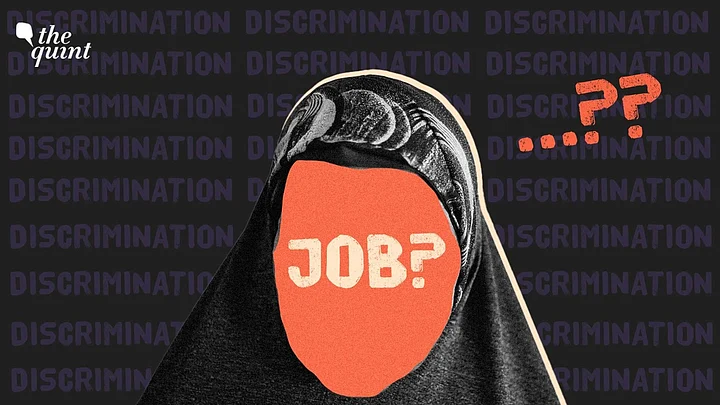For every two job callbacks that a Hindu woman gets in India, a Muslim woman gets only one, a study has found.
The study conducted by LedBy foundation, titled Hiring Bias: Employment for Muslim women at entry-level roles, discovered a high level of discrimination against Muslim women for hiring in entry-level jobs across several industries, despite them being as qualified for the jobs as their Hindu counterparts.
The foundation created two identical resumes: one of a Muslim woman named Habiba Ali, and the other of a Hindu woman named Priyanka Sharma.
Over the last ten months, they applied to 1,000 entry-level jobs, only to find that Sharma's resume was preferred to Ali's by 50 percent.
Hindu Woman Received 208 Positive Responses, While the Muslim Woman Received 103
Of the 1,000 jobs applied to, Sharma received 208 positive responses, while Ali received around half of that (103). Thus, despite having similar capabilities, Ali's profile was far less preferred compared to Sharma's.
Further, both Ali and Sharma received 88 positive responses from the same organisations. However, Sharma received 120 responses from unique organisations, while Ali received only 15.
A net discrimination rate of 47.1 percent was observed, highlighting a massive bias between callbacks for the two women belonging to different religious groups.
The study further observed that organisations reached out to the Hindu woman more personally compared to her Muslim counterpart.
Ali rarely received a follow-up call, whereas Sharma received several.
Also, while Sharma received 15 positive responses from recruiters coming upon her online profile, Ali only received one.
Discrimination Across Industries and Geographical Regions
The study also highlighted the bias against hiring Muslim women across industries and geographical regions in India.
In the computer software industry, for example, Sharma received a response rate of 23 percent from recruiters, while Ali received only 4 percent responses.
In Information Technology and Services, 21 percent of recruiters responded to Sharma's application, while only 9 percent responded to Ali's.
In terms of geographical regions, the net discrimination rate was higher in companies located in south and west India, compared to North India.
In the south, for example, Sharma's response rate was 16 percent, while Ali's was 6 percent. The same figures for north India were 23 percent and 14 percent respectively.
70% of Muslim Women Confined to Household Sphere
Among all religious groups, the participation of Muslims in the Indian workforce is the lowest among religious groups – at 33 percent. Hindus, on the other hand, have a participation of 41 percent.
To add to the Muslim community's woes, the participation of its women in the workforce is only 15 percent.
The 2011 population census had stated that 50 million Muslim women were of working age (15-65 years old) in India. However, a staggering 70 percent of them have been confined to household work compared to the national average of 51 percent, as per the study.
One of the possible solutions promoted by the company to tide over the hiring bias is to introduce a 'blind' hiring process, which would involve "stripping all non-essential candidate information such as name, schools, and ages etc."
The foundation says that doing so could prevent "unconscious bias" from creeping in, at least in the initial screening stages.
The study by LedBy Foundation was published in association with Maulana Azad National Urdu University.
(At The Quint, we question everything. Play an active role in shaping our journalism by becoming a member today.)
